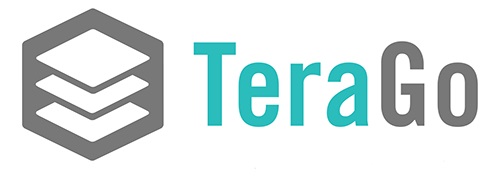
TORONTO — Data centre and connectivity services provider TeraGo experienced growth in its cloud and colocation business in the second quarter of 2018, but saw an overall decrease in revenues due to the weaker performance of its connectivity division.
The company’s total revenues decreased 1.5% to $13.7 million for the second quarter of 2018, compared to $13.9 million for the same quarter of 2017. Revenues generated by its connectivity services business decreased 4.2% to $8.8 million in Q2 2018, compared to the division’s Q2 2017 revenues of $9.2 million. Connectivity revenues were impacted by a variety of factors, including churn and certain customers renewing long-term contracts at lower current market rates, TeraGo said in a news release announcing its Q2 2018 financial results.
TeraGo’s cloud and colocation revenues increased 3.8% to $4.9 million in the second quarter of 2018, compared to $4.7 million for the same period in 2017. The company said its product mix remained steady year over year, with a slight increase in cloud and colocation services, as TeraGo continues to shift toward higher-growth service offerings. In Q2 2018, connectivity services accounted for 64% of TeraGo’s business, while cloud and colocation accounted for 36%. A year ago, connectivity services generated 66% of TeraGo’s revenues, while cloud and colocation accounted for 34%.
The company reported a net loss of $1.5 million for Q2 2018, compared to a net loss of $1.1 million in Q2 2017. Its adjusted EBITDA (earnings before interest, taxes, depreciation and amortization) increased to $3.1 million for the second quarter of 2018, compared to $3.0 million for the same quarter of 2017.
During the second quarter, TeraGo exercised the purchase option it has with Mobilexchange Spectrum Inc. (MSI) for certain spectrum licences it currently leases from MSI. TeraGo continues to work with MSI to complete the spectrum acquisition, valued at $5.7 million, which is also subject to regulatory approval, TeraGo said.
“In the second quarter, growth in cloud and colocation helped to stabilize our business as we continued to provision services to customers in our backlog,” said Tony Ciciretto, president and CEO of TeraGo, in the news release. “With improving churn and ARPU, we are encouraged by the operating trends we are seeing in our business and we will continue to focus on managing our cost structure while making strategic investments to drive future growth.
“Over the next year, we expect industry activity around 5G wireless spectrum to pick up as ISED (the Ministry of Innovation, Science and Economic Development) begins to execute its four-year plan to release spectrum for next generation services. With the proceeds from our recent equity financing, we have exercised our option to acquire six 24 GHz licences and pending application and ISED approval will deepen our coverage in Canada’s major markets. We hope to see the profile of the 24 GHz band enhanced as part of Canada’s 5G roadmap like it has in the United States,” Ciciretto added.
TeraGo operates five data centres in the Greater Toronto Area, the Greater Vancouver Area and Kelowna, BC, and owns and manages its own IP network.
More information about TeraGo’s Q2 2018 financial results can be accessed here.



